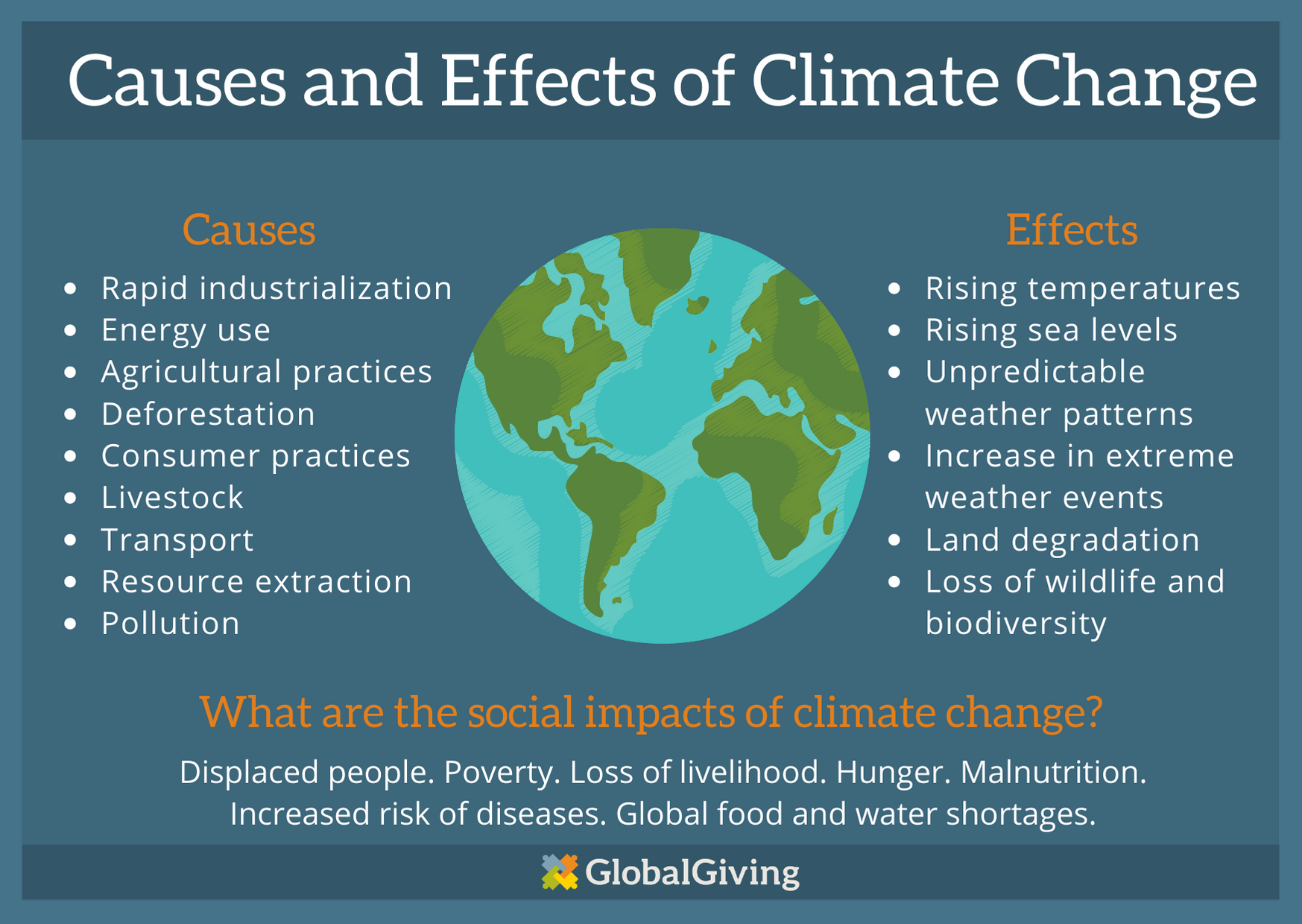Climate change, often referred to as global warming, is one of the most pressing challenges of our time. It is not merely an environmental issue but a crisis that has far-reaching implications for our world, touching upon economics, health, ecosystems, and more. In this comprehensive overview, we will explore the multifaceted impacts of climate change, emphasizing the urgency of collective action to address this global crisis.
The Science Behind Climate Change
Before we delve into the impacts, it’s crucial to understand the science behind climate change. At its core, climate change is driven by the accumulation of greenhouse gases in the Earth’s atmosphere. These gases, primarily carbon dioxide (CO2), trap heat and lead to a gradual increase in global temperatures—a phenomenon known as the greenhouse effect. Human activities, such as burning fossil fuels and deforestation, have significantly contributed to the rise in greenhouse gas concentrations, exacerbating the problem.
Impacts on Weather Patterns
One of the most visible and immediate effects of climate change is the alteration of weather patterns. Increased temperatures can lead to more frequent and severe heatwaves, droughts, and wildfires. Conversely, some regions may experience more intense rainfall and flooding due to changes in precipitation patterns. These extreme weather events disrupt agriculture, threaten water supplies, and displace communities.
Rising Sea Levels and Coastal Vulnerability
The melting of polar ice caps and glaciers, driven by global warming, results in rising sea levels. This poses a grave threat to coastal communities worldwide. As sea levels continue to rise, low-lying areas are at risk of inundation, leading to the displacement of millions of people. Coastal cities like Miami, New York, and Mumbai are particularly vulnerable to the encroaching waters, which could have catastrophic economic and social consequences.
Biodiversity Loss and Ecosystem Disruption
Climate change also takes a toll on biodiversity. Many species, from polar bears in the Arctic to coral reefs in tropical oceans, face extinction due to shifts in their habitats and food sources. These changes disrupt ecosystems and have a cascading effect on other species, including humans who depend on these ecosystems for food and resources.
Health Impacts
The consequences of climate change extend to human health. Higher temperatures can lead to heat-related illnesses, particularly among vulnerable populations such as the elderly and young children. Additionally, the spread of diseases like malaria and dengue fever is facilitated by the expansion of the geographic range of disease-carrying vectors. Air pollution resulting from increased wildfires and the burning of fossil fuels exacerbates respiratory problems and contributes to premature deaths.
Economic Consequences
Climate change also carries substantial economic costs. Extreme weather events result in billions of dollars in damages each year, straining economies and insurance systems. Additionally, industries reliant on stable climate conditions, such as agriculture and tourism, are at risk of disruption. The need for climate mitigation and adaptation measures represents a significant financial burden.
Food Security
Agriculture is profoundly impacted by climate change. Altered weather patterns, prolonged droughts, and increased pest infestations can reduce crop yields and threaten food security. This poses a dire challenge for a world that is already grappling with issues of hunger and malnutrition.
Social and Political Ramifications
The impacts of climate change are not limited to the natural world; they also have profound social and political consequences. Displacement due to rising sea levels and extreme weather events can lead to conflicts over resources and mass migrations, exacerbating existing political tensions. Furthermore, climate change can undermine political stability and pose a threat to national security.
The Urgent Need for Action
Understanding the far-reaching impacts of climate change underscores the urgency of taking meaningful action. Addressing this crisis requires a global effort to reduce greenhouse gas emissions, transition to renewable energy sources, and implement sustainable land-use practices. International agreements like the Paris Agreement aim to unite countries in the fight against climate change, but individual actions are also crucial.
Conclusion
Climate change is a crisis that transcends borders and affects every aspect of our world. From altering weather patterns to threatening biodiversity, from endangering coastal communities to impacting human health and economies, its reach is undeniable. To safeguard our planet and future generations, it is imperative that we acknowledge the severity of the issue and take concerted action to mitigate its effects. The time to act is now, and our collective response will determine the fate of our world.





